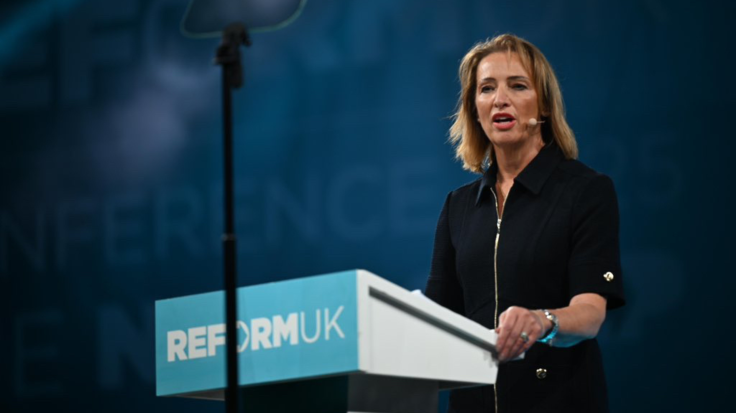Who Is 'The Average Brit'? MP's Attack on 'Adverts Full of Black People' Sparks Race Row Over Representation

Reform UK MP Sarah Pochin has ignited a furious backlash after claiming that modern adverts 'full of black people, full of Asian people' no longer reflect 'your average white family'.
The Runcorn and Helsby MP made the controversial remarks during an appearance on TalkTV, prompting widespread condemnation from politicians and campaigners who branded her comments 'offensive' and 'out of touch'.
'It Drives Me Mad'
Responding to a viewer who complained about diversity in television advertising, Pochin said: 'It drives me mad when I see adverts full of black people, full of Asian people. It doesn't reflect our society, and I feel that your average white person, average white family is not represented anymore.'
She went on to blame what she called the 'woke liberati' of the 'arty-farty world', adding that while such adverts might 'be fine inside the M25', they are 'not representative of the rest of the country'.
Her comments triggered outrage online and in Westminster, with Labour chairwoman Anna Turley calling them 'completely unacceptable'.
'It's astonishing that a senior MP is spending her time counting the number of people with a different skin colour to her on TV adverts,' Turley said, urging Reform leader Nigel Farage to denounce the remarks.
Apology and Deflection
After facing mounting criticism, Pochin issued a statement apologising 'for any offence caused', saying her words had been 'phrased poorly'.
However, she stood by her main argument, claiming the advertising industry had gone 'DEI mad', referring to diversity, equity and inclusion initiatives, and no longer represented 'British society as a whole'.
'The point I was trying to make is that the British advertising agency world has gone DEI mad and many adverts are now unrepresentative of British society as a whole,' she said.
Who Defines 'British Society'?
Pochin's remarks have reignited debate over who gets to define the face of Britain in an era of shifting demographics and growing multiculturalism.
For decades, television adverts showcased almost exclusively white families. In recent years, advertisers have embraced more diverse imagery—mixed-race couples, hijab-wearing mothers and black professionals—as part of a conscious push for inclusion.
Critics like Pochin see that as overcompensation, arguing that the 'average Brit' has been replaced. Supporters of diverse advertising say it's simply a reflection of how Britain looks today.
A Country Changing Before Its Eyes
According to the 2021 Census for England and Wales, 74.4 per cent of residents identified as 'White: English, Welsh, Scottish, Northern Irish or British', while 9.3 per cent identified as Asian and 4.0 per cent as black. Among those who identified as 'Mixed or Multiple ethnic groups', the median age was just 19, the youngest of any major category.
Demographers say such figures help explain why diversity has become increasingly visible in advertising, especially as younger generations represent a broader ethnic mix.
Campaigners for media diversity argue that far from over-representation, the advertising industry is only now beginning to catch up with the country's changing reality.
'Authenticity' or Exclusion?
Pochin's outburst has done more than question the creative direction of Britain's ad agencies. It has reignited an uncomfortable conversation about who feels represented and who defines what it means to be 'the average Brit'.
As critics accuse her of fuelling racial division, her words have become a cautionary tale about how debates over authenticity and representation can quickly slip into exclusionary rhetoric.
© Copyright IBTimes 2025. All rights reserved.





















